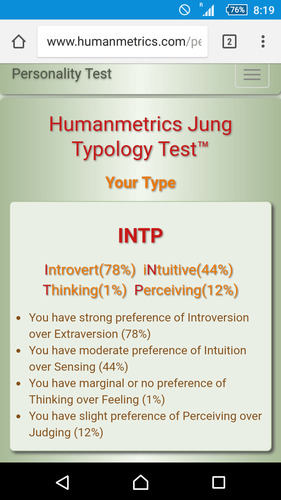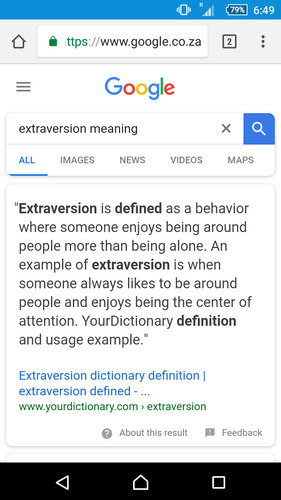This is not a silly little quiz, the likes of which can be found in magazines. It's a test based on Jung and Myer-Briggs' personalites theories, both of whom are well-known in the field of psychology. It explains the different personality types and of course your results will show which one(s) you are.
The analysis of your personality is very interesting indeed.
http://www.humanmetrics.com/cgi-win/jtypes2.asp
The analysis of your personality is very interesting indeed.
http://www.humanmetrics.com/cgi-win/jtypes2.asp










